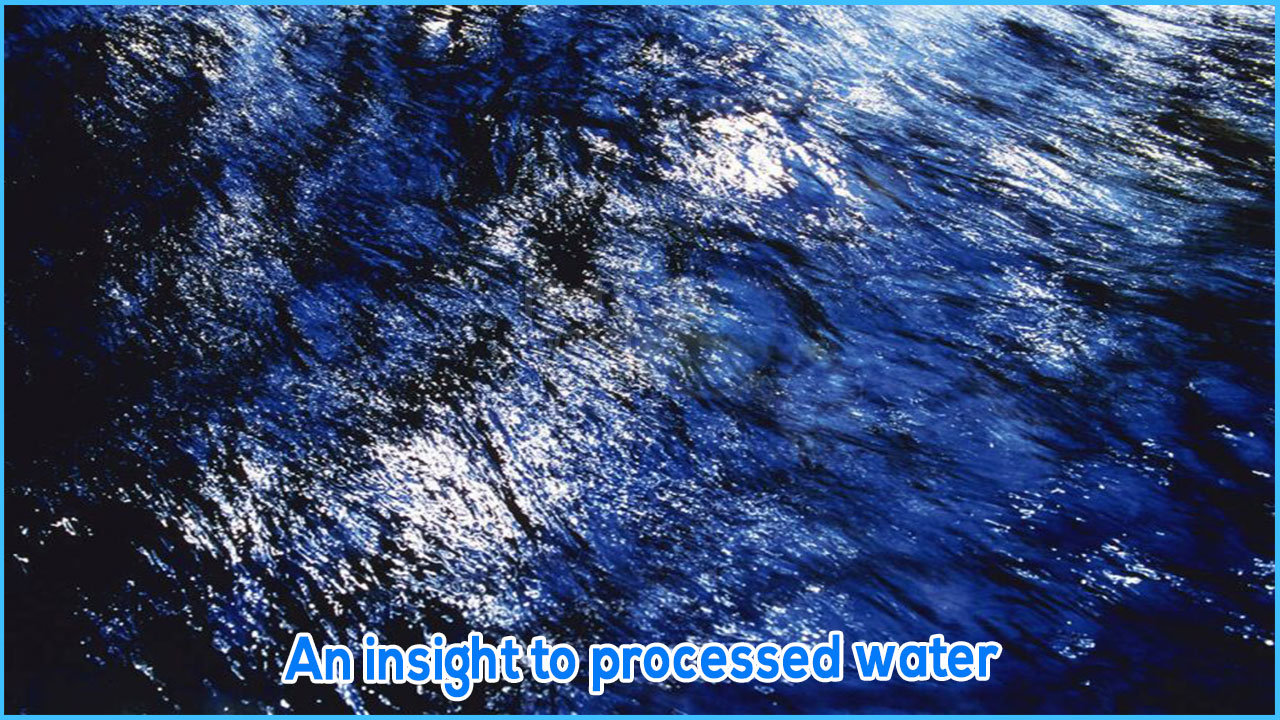Process water is water that is used for a variety of manufacturing processes, including: boiler make-up water; cooling tower make-up water; coating and plating; rinsing and spraying; washing and many others. Municipal or ground water supplies often contain dissolved minerals which can cause a multitude of problems than can affect product quality and manufacturing costs.
Some of the problems caused by dissolved minerals in process water include: streaking, fouling, spotting and adherence interference. Higher energy costs may also result from poor quality process water. For example, demineralized process water will result in a notable reduction in boiler fuel consumption over untreated process water, allowing the boiler to operate at much higher concentration cycles, and greatly reducing the blowdown of extremely hot water into the drain.
PROCESSED WATER TREATMENT
There are ample numbers of processes to attain processed water, some of the following are listed as follows:
- Activated Carbon Filters.
- Aeration.
- Air Stripping.
- Chlorination.
- Dealkalization.
- Decarbonation.
- Dechlorination.
- Degasification.
- Deionization.
- Demineralization.
- Distillation.
- Electro deionization.
- Greensand Filtration.
- Ion Exchange.
- Microfiltration.
- Mobile Demineralization.
- Multi-Media Filtration.
- Nanofiltration.
- Ozonation.
- Reverse Osmosis.
- Softening.
- Ultraviolet Disinfection.
- Ultraviolet TOC Destruction.
- Ultrafiltration.
- Evaporation.
- Oil/Water Separation etc.
The specific process water requirements of various industries and plants vary enormously. Water is therefore produced using a variety of process water technologies depending on the feed water and final water quality and volume requirements. These process water technologies are designed to meet these needs, producing high-quality process water from a range of feed water sources and significantly reducing water consumption.
All these processes use different principle in order to eradicate the contaminant from the raw water. You must be familiar with the process of osmosis and diffusion. In the same way reverse osmosis treatment uses the same principle. Other processes are based upon the contaminant that needs to be eradicated such as for oil and gas, aeration is used. Boiler based industries required water free from hardness and in those cases we uses reverse osmosis such that boilers stays safe against corrosion and incrustation. Ultrafiltration has been widely used by packaged water industries so it depends upon the requirement of the quality by the industry.
CONTAMINANTS REMOVED
Some of the typical contaminants are removed with help of processed water treatments which are listed as well in order to ascertain which process should be followed according to the demand:
- Bacterial Contamination
- Colour
- Corrosion
- Dissolved Gases
- Dissolved Solids
- Fouling
- Grease
- Hardness
- Hydrogen Sulphide
- Iron
- Limestone
- Manganese
- Mud
- Odour
- Oil
- Organics
- pH
- Pitting
- Radon
- Scaling
- Sediment
- Spotting
- Sulphur
- Tannins
- Taste
- Total Organic Carbon
- Turbidity etc.
USAGE
Here are just a few examples of industrial process water use:
- Pharmaceutical and cosmetics industries: process water is required that continuously meets stringent regulatory requirements.
- Food and beverage industries: flexible water purification and contaminant removal systems support the need for ingredient water.
- Chemical and petrochemical industries: process water is used for cooling tower systems, makeup water and blowdown treatment systems.
- Automotive industry: vehicle production plants have a significant demand for process water of known quality etc.



